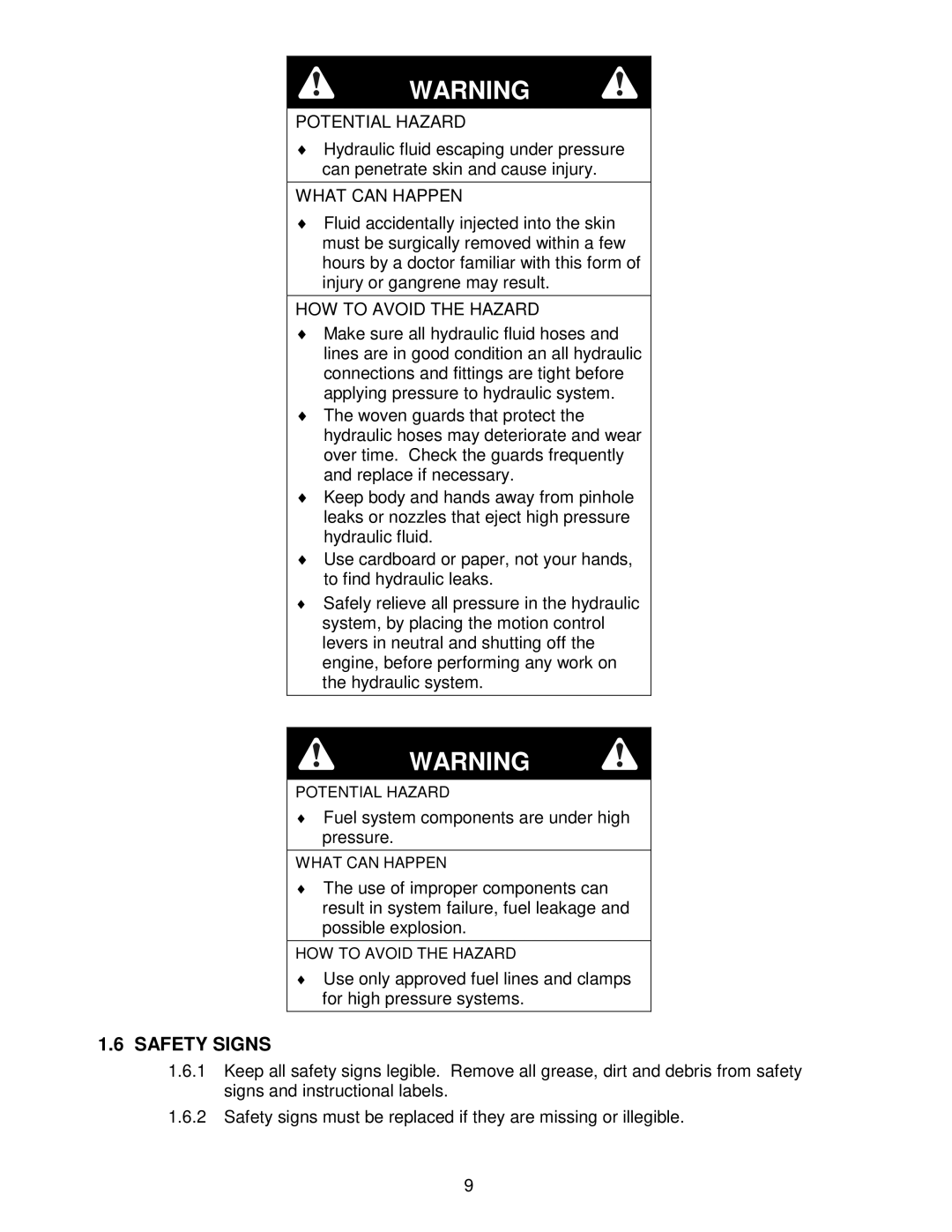
WARNING
POTENTIAL HAZARD
♦Hydraulic fluid escaping under pressure can penetrate skin and cause injury.
WHAT CAN HAPPEN
♦Fluid accidentally injected into the skin must be surgically removed within a few hours by a doctor familiar with this form of injury or gangrene may result.
HOW TO AVOID THE HAZARD
♦Make sure all hydraulic fluid hoses and lines are in good condition an all hydraulic connections and fittings are tight before applying pressure to hydraulic system.
♦The woven guards that protect the hydraulic hoses may deteriorate and wear over time. Check the guards frequently and replace if necessary.
♦Keep body and hands away from pinhole leaks or nozzles that eject high pressure hydraulic fluid.
♦Use cardboard or paper, not your hands, to find hydraulic leaks.
♦Safely relieve all pressure in the hydraulic system, by placing the motion control levers in neutral and shutting off the engine, before performing any work on the hydraulic system.
WARNING
POTENTIAL HAZARD
♦Fuel system components are under high pressure.
WHAT CAN HAPPEN
♦The use of improper components can result in system failure, fuel leakage and possible explosion.
HOW TO AVOID THE HAZARD
♦Use only approved fuel lines and clamps for high pressure systems.
1.6SAFETY SIGNS
1.6.1Keep all safety signs legible. Remove all grease, dirt and debris from safety signs and instructional labels.
1.6.2Safety signs must be replaced if they are missing or illegible.
9
